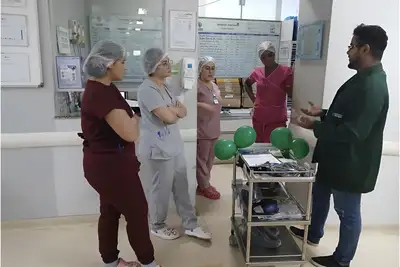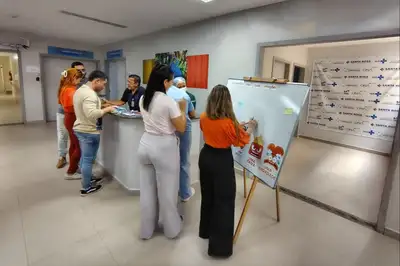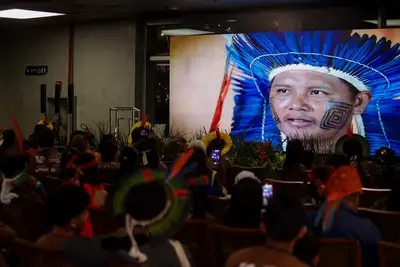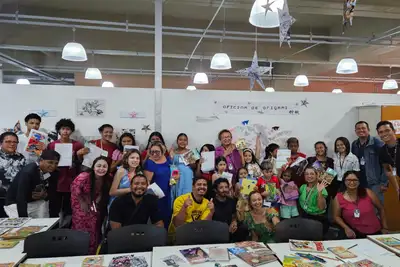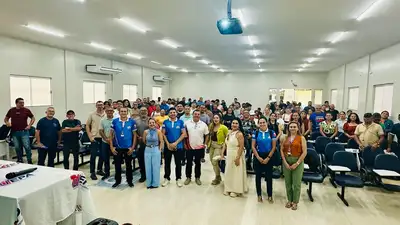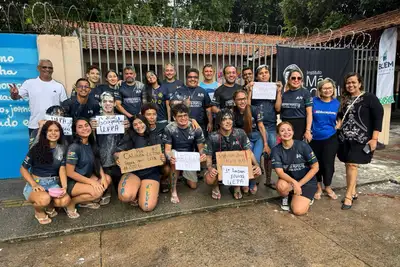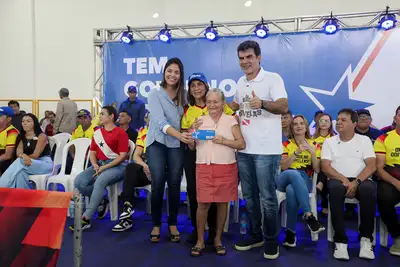Seplad holds the 35th edition of "Planning on the Agenda", focusing on COP30, Public Policies, and Bioeconomy
Held online, the meeting had the participation of more than 100 people, including public servants and members of educational and research institutions.
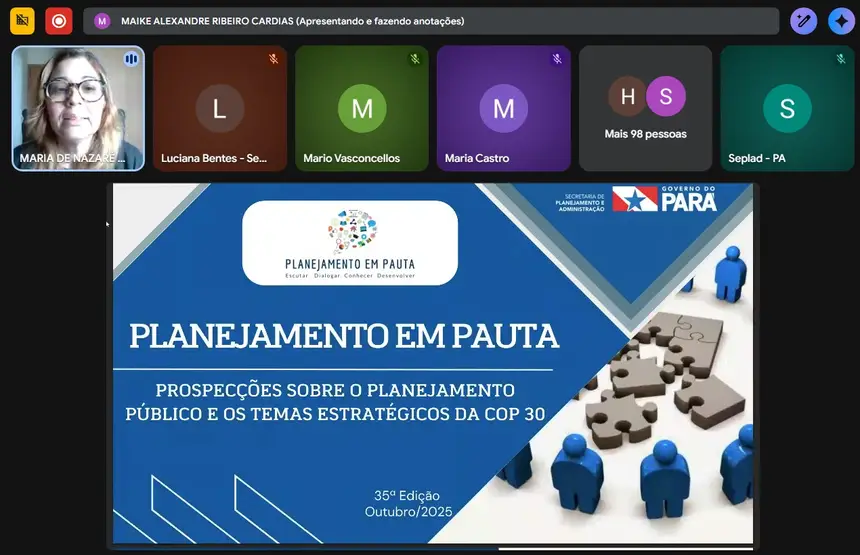
In a moment of reflection and exchange of experiences on the role of public planning in the sustainability agenda and in preparing Pará for the 30th United Nations Conference on Climate Change (COP30), which starts on November 10, the State Secretariat for Planning and Administration (Seplad) held, this Thursday (30), the 35th edition of "Planning on the Agenda", with the theme "Prospects on Public Planning and Strategic Themes of COP30". Held online, the meeting had the participation of more than 100 people, including public servants and members of educational and research institutions.
During her presentation, the Deputy Secretary of Planning and Budget of Seplad, Nazaré Nascimento, addressed the goals of the Long-Term Strategic Plan of the State of Pará - (Pará 2050), developed in alignment with the State Plan for the Amazon Now (PEAA).
"Pará 2050 brought a climate focus and also presented environmental strategies related to the climate emergency, recognized as one of the seven cross-cutting themes of the plan. Mitigation and adaptation actions are integrated into all sectoral axes, especially regarding the environment, economic movement, and infrastructure. When we talk about combating the climate crisis, the approach is territorialized and inclusive, with regional actions based on axes, guidelines, and specific strategies for each region. Social participation within the perspective of sustainability is also fundamental, as is the appreciation of sociobiodiversity. Pará 2050 reinforces integration with state strategic plans, such as the state plan Amazon Now, the state bioeconomy plan (Plan BIO), and the multiannual plans. These goals highlight the State's commitment to sustainable development and climate transition," emphasized Nazaré.
Constructed in a participatory manner, Pará 2050 is aligned with the Sustainable Development Goals (SDGs) of the UN 2030 Agenda, reinforcing the commitment of the government of Pará to integrate economic growth, environmental preservation, and social justice. The plan is also anchored in legal and strategic state frameworks, such as the State Bioeconomy Plan of Pará (PlanBIO) and the PEAA itself, which aim to achieve, at the state level, the goals of the UN 2030 Agenda.
Meanwhile, the Deputy Secretary of Bioeconomy of the Secretary of Environment and Sustainability (Semas), Camille Bemerguy, emphasized bioeconomy as a new paradigm of sustainable development and highlighted Pará's leadership in advancing public policies aimed at the green economy.
"Bioeconomy is seen as the greatest green asset that Brazil has for the 21st century. Thinking of bioeconomy as something irrelevant is a mistake, and the State of Pará, by bringing the climate agenda to the strategic center of its policies, has bioeconomy as one of the main strategies for low-carbon socioeconomic development. This model will contribute to the transformation of the State, with the goal of becoming a carbon-neutral State by 2030. Pará has built an entire institutional framework on which the Bioeconomy Plan is anchored, with the State Plan for the Amazon Now (PEAA). Today, bioeconomy is a pioneering state plan, supported by public policies and laws that support it. With this, we can integrate conservation and socioeconomic development, something that previously seemed incompatible, but which, in reality, complement each other and are essential for advancing the sustainable development model," stated the Deputy Secretary of Semas.
The Bioeconomy Plan of Pará is anchored in the State Policy on Climate Change, based on the State Plan for the Amazon Now (PEAA), which guides strategic actions aimed at sustainable development, environmental conservation, and low-carbon economy in the state.
The coordinator of the Graduate Program in Sustainable Development of the Humid Tropics (PPGDSTU) at the Federal University of Pará (UFPA), Thales Cañete, presented reflections on public planning.
"Planning must be permeable; to be decolonial, it needs to be open to the epistemic, socio-territorial, and productive diversities of Amazonian peoples, as bioeconomy and planning for 2050 already propose. Planning needs to practice a decolonial political antistemology from the Amazonian peoples, utilizing their environmental, social, territorial, and productive diversity, demanding a planning theory of socio-environmental organizations that is open to these diversities," explained Thales.
Meanwhile, Mário Vasconcellos, a professor in the Graduate Program in Administration, research line Public Management and Development at the University of the Amazon (Unama), mediator of the debate, emphasized the importance of valuing local knowledge and community leadership in building solutions aligned with territorial realities.
"The State brings a perspective of economization of knowledge, based on valuing local knowledge and building development from an endogenous approach. This strengthens community pathways as central agents in promoting sustainable, inclusive solutions aligned with territorial realities," concluded the professor.
About planning on the agenda
"Planning on the Agenda" consolidates itself as a permanent forum for inter-institutional articulation, aimed at the circulation of qualified information, fostering critical thinking, and collaboratively building solutions for the sustainable development of Pará. The initiative reinforces the commitment of the State government to modern, efficient public management oriented towards concrete results for society.


